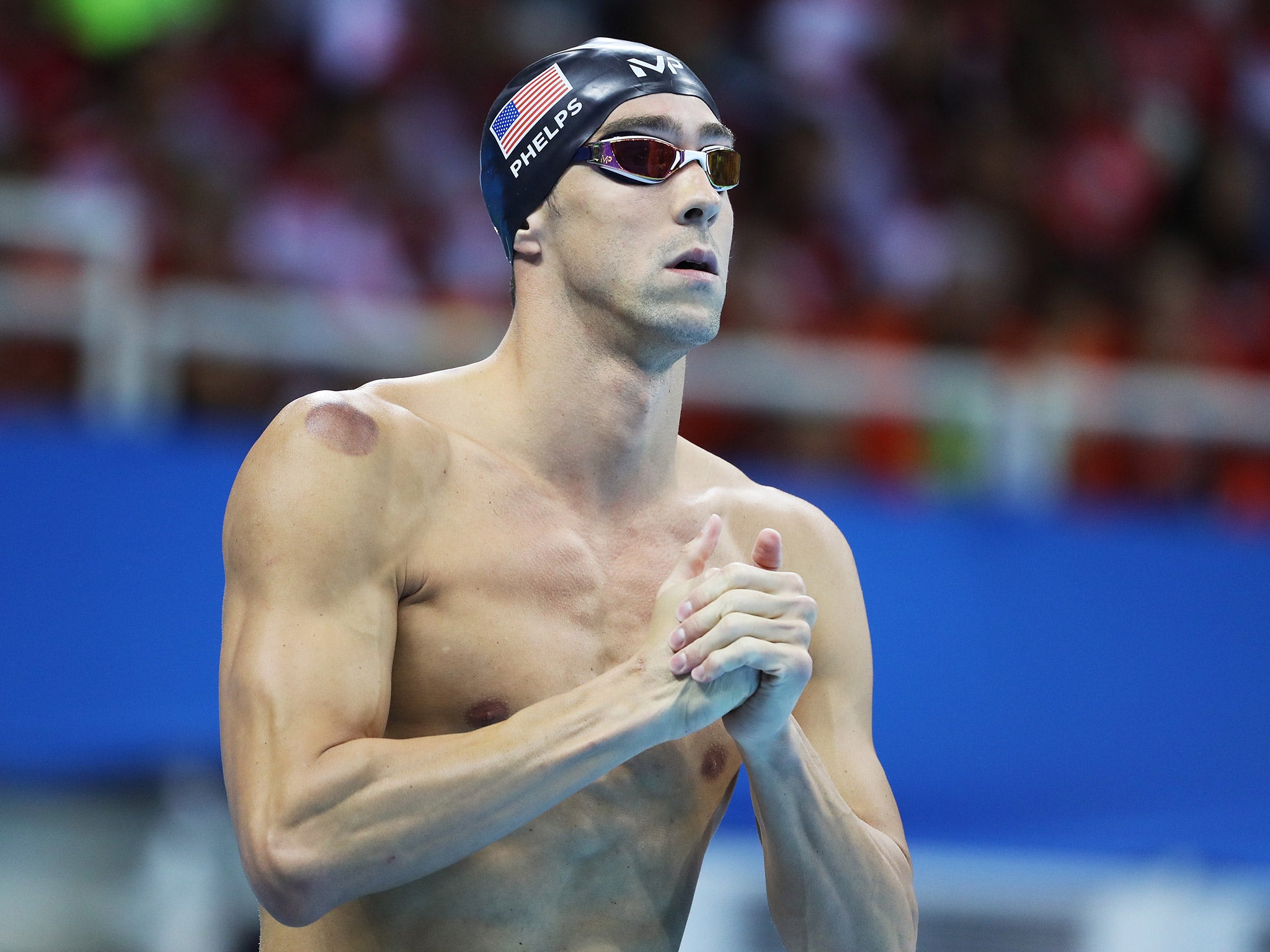Rio 2016: Michael Phelps says 'it breaks my heart' to see drug cheats competing in the Olympics
Record Olympic medal winner Phelps has joined the growing number of athletes speaking out against drug cheats at the Olympics

Your support helps us to tell the story
From reproductive rights to climate change to Big Tech, The Independent is on the ground when the story is developing. Whether it's investigating the financials of Elon Musk's pro-Trump PAC or producing our latest documentary, 'The A Word', which shines a light on the American women fighting for reproductive rights, we know how important it is to parse out the facts from the messaging.
At such a critical moment in US history, we need reporters on the ground. Your donation allows us to keep sending journalists to speak to both sides of the story.
The Independent is trusted by Americans across the entire political spectrum. And unlike many other quality news outlets, we choose not to lock Americans out of our reporting and analysis with paywalls. We believe quality journalism should be available to everyone, paid for by those who can afford it.
Your support makes all the difference.Michael Phelps has admitted that that the inclusion of athletes who have served bans for doping is heartbreaking for clean athletes competing at the Rio Olympic Games.
Phelps was quizzed on the subject after the women’s 100m breaststroke final, where his compatriot Lilly King beat Russian Yulia Efimova to gold before launching a verbal attack on her for being banned twice after failing drugs tests.
King also took aim at her Team USA colleague, Justin Gatlin, for being allowed to compete despite serving two suspensions for failed drugs tests, with the sprinter largely criticised since his return to competition in 2010.
While Phelps did not specifically mention Efimova of Gatlin, he left it in no doubt who his criticism of drug cheats was aimed at.
"I think it's sad that we have people in sports today who are testing positive not only once, but twice, and still having the opportunity to swim at these Games," said the 23-time medal winner.
"It breaks my heart and I wish somebody would do something about it."
Phelps added that he believed "sports should be on an even playing field."
Gatlin served a four-year suspension from competition between 2006 and 2010 after testing positive for testosterone, having already been given a two-year suspension that was later reduced due to a positive test for amphetamines in 2001.
The inclusion of Gatlin – along with his Team USA colleague Tyson Gay – has been controversial given the pair have seen their reputations destroyed by doping charges, and despite featuring in the same United States team, King believes they have no place at the Olympics due to their tainted past.
“I have to respect their decision,” King said when asked specifically about Gatlin’s inclusion after she had won the women’s 100m breaststroke final. “I think people who are caught on doping offences should not be on the team. No they shouldn’t. We should settle this and it should be the end of it. There should not be any bouncing back and forth.”
King was speaking in a heated post-race press conference in which she took aim at shamed Russian swimmer Yulia Efinova, despite the silver medallist sitting a few feet beside her. King refused to look Efimov in the eye after claiming she had no place at the Olympics following two failed drug tests, the second of which was overturned on appeal by the Court of Arbitration for Sport last week despite a positive test for meldonium earlier this year.
Efinova used Gatlin as an example as to why she should be allowed to compete, and claimed that she was not at fault for the second failed test and has a right to be in Rio after serving her time.
“I once made mistakes and I was banned for 16 months,” she said. “Second time it was not my fault. If Wada [World Anti-Doping Agency] say tomorrow they are banning yoghurt or animal protein or stuff that other people use and they ban this and you stop, [what happens next?] This comes out of your body for six months and if doping control come after two months and it is still in your body, is this your fault?”
Asked if she thought Gatlin’s apparent escape from censure suggested double standards, she said: “I don’t know what’s happened with different athletes [like Gatlin]. I do not have time to watch what is going on with different athletes.”
Join our commenting forum
Join thought-provoking conversations, follow other Independent readers and see their replies
Comments